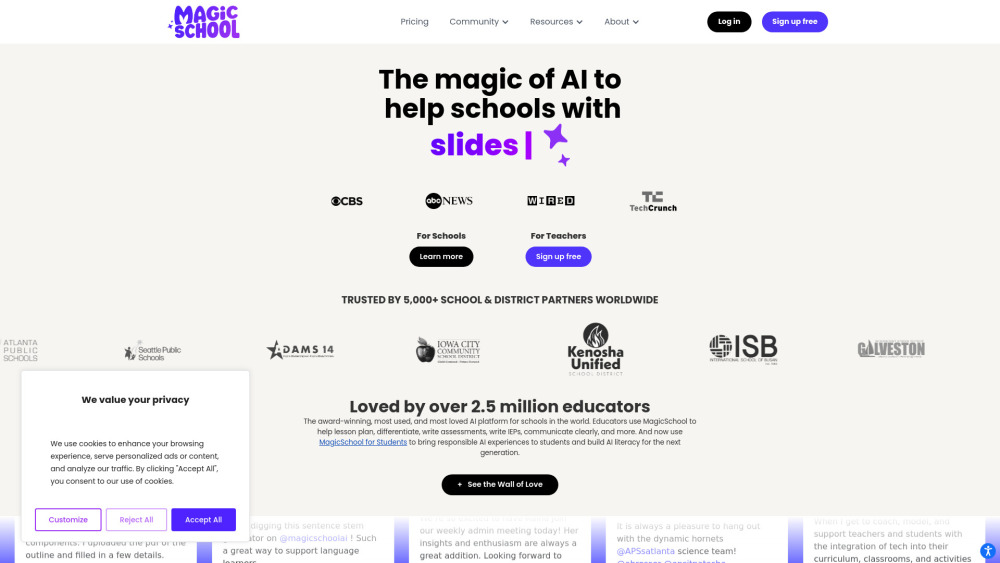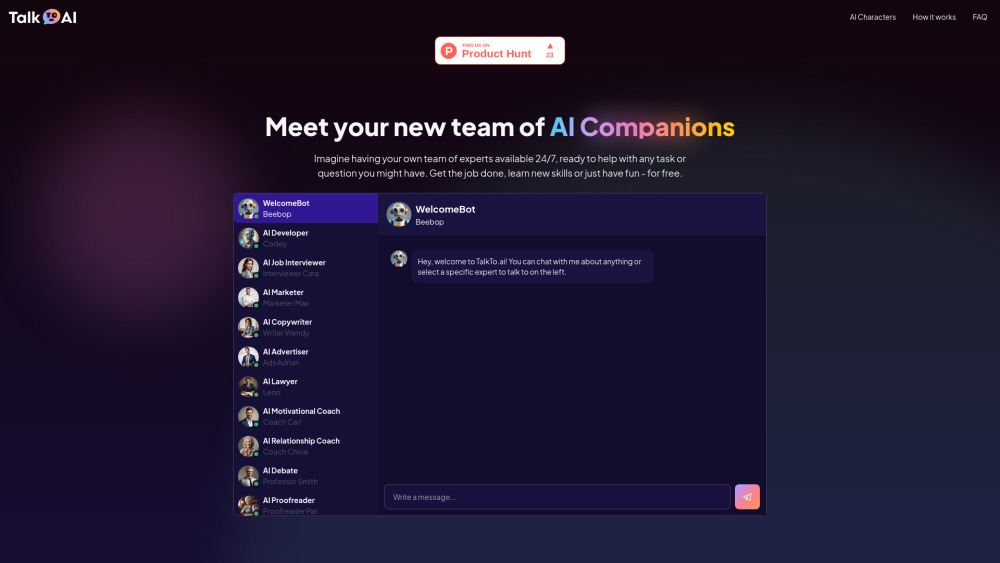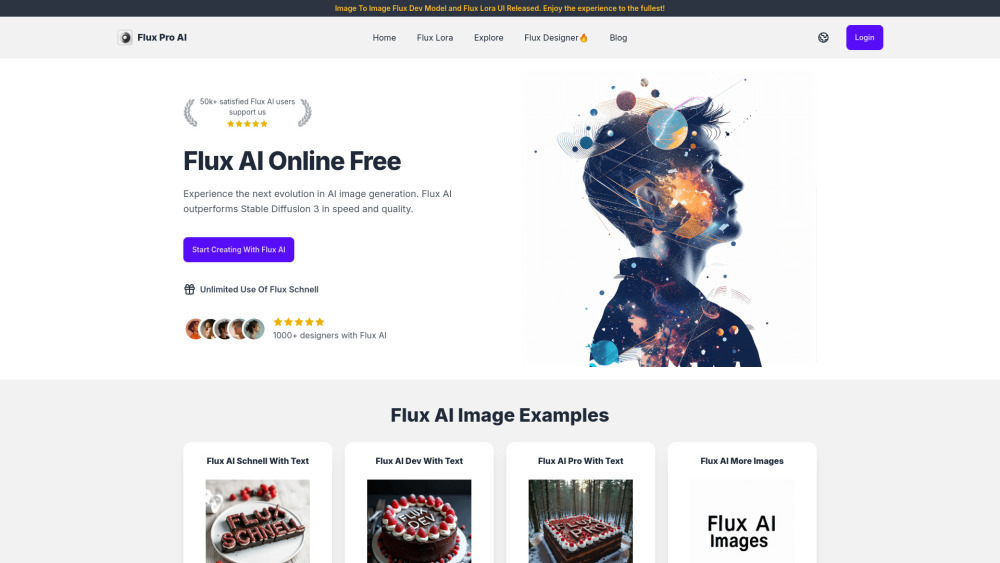Google’s Web-Browsing AI Jarvis is Now Officially Rebranded as Project Mariner
Most people like

OpenL is an advanced AI-driven translation tool designed for effortless cross-language text translation. Experience enhanced communication with our innovative solution, which breaks down language barriers and connects people globally.

Revolutionizing Education: An AI Platform Designed to Assist Educators with Lesson Planning and Administrative Duties.

Engage in lively conversations with a variety of AI companions—completely free! Discover the unique personalities and insights each AI brings, making your chat experience both enjoyable and enriching. Unleash the potential of AI interaction today!

Introducing an innovative AI platform designed specifically for creating stunning, high-quality images effortlessly. This advanced tool harnesses cutting-edge technology to transform ideas into visually captivating graphics, making it an essential resource for artists, marketers, and content creators alike. Elevate your visual content today with our AI-driven image generation platform!
Find AI tools in YBX



